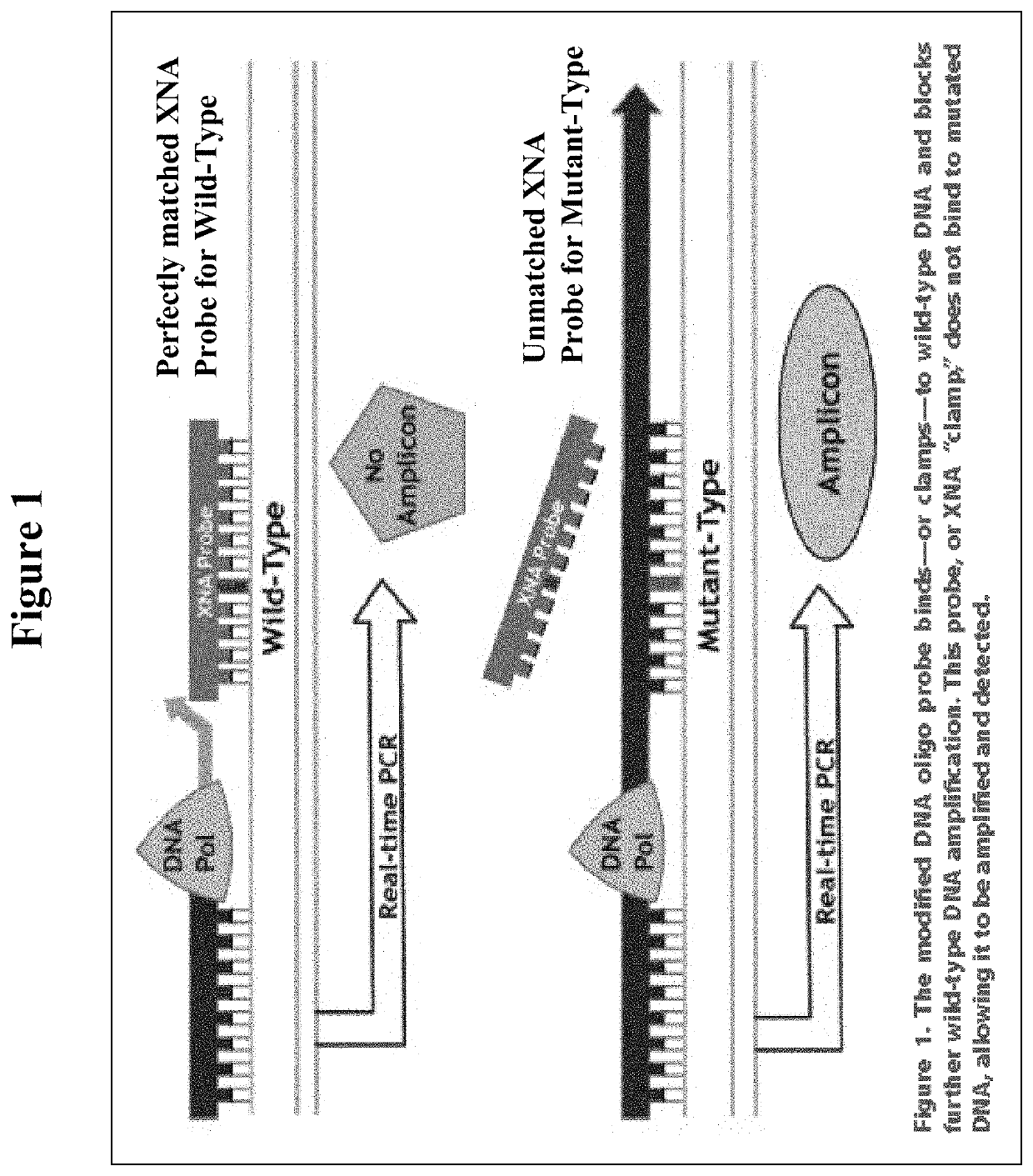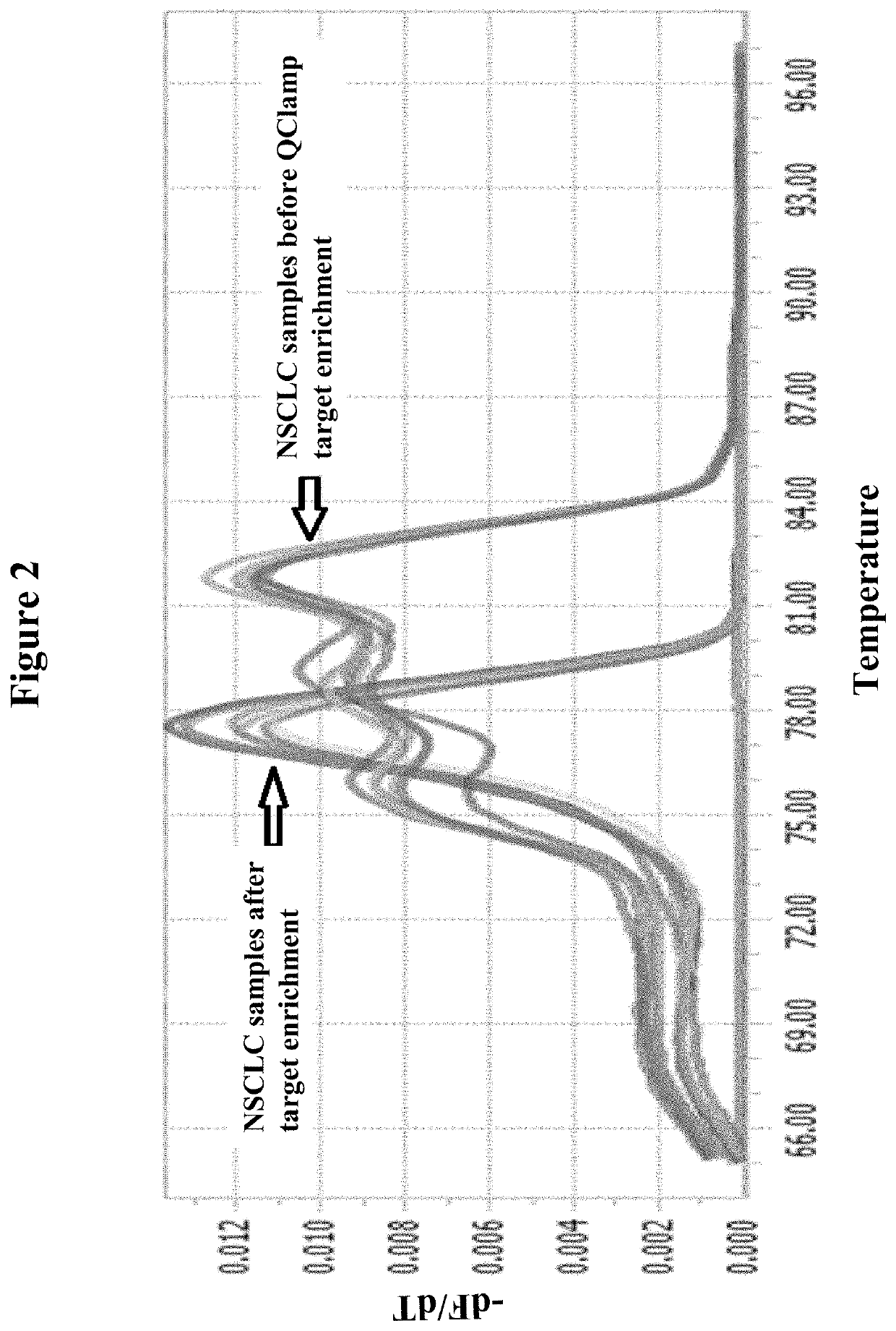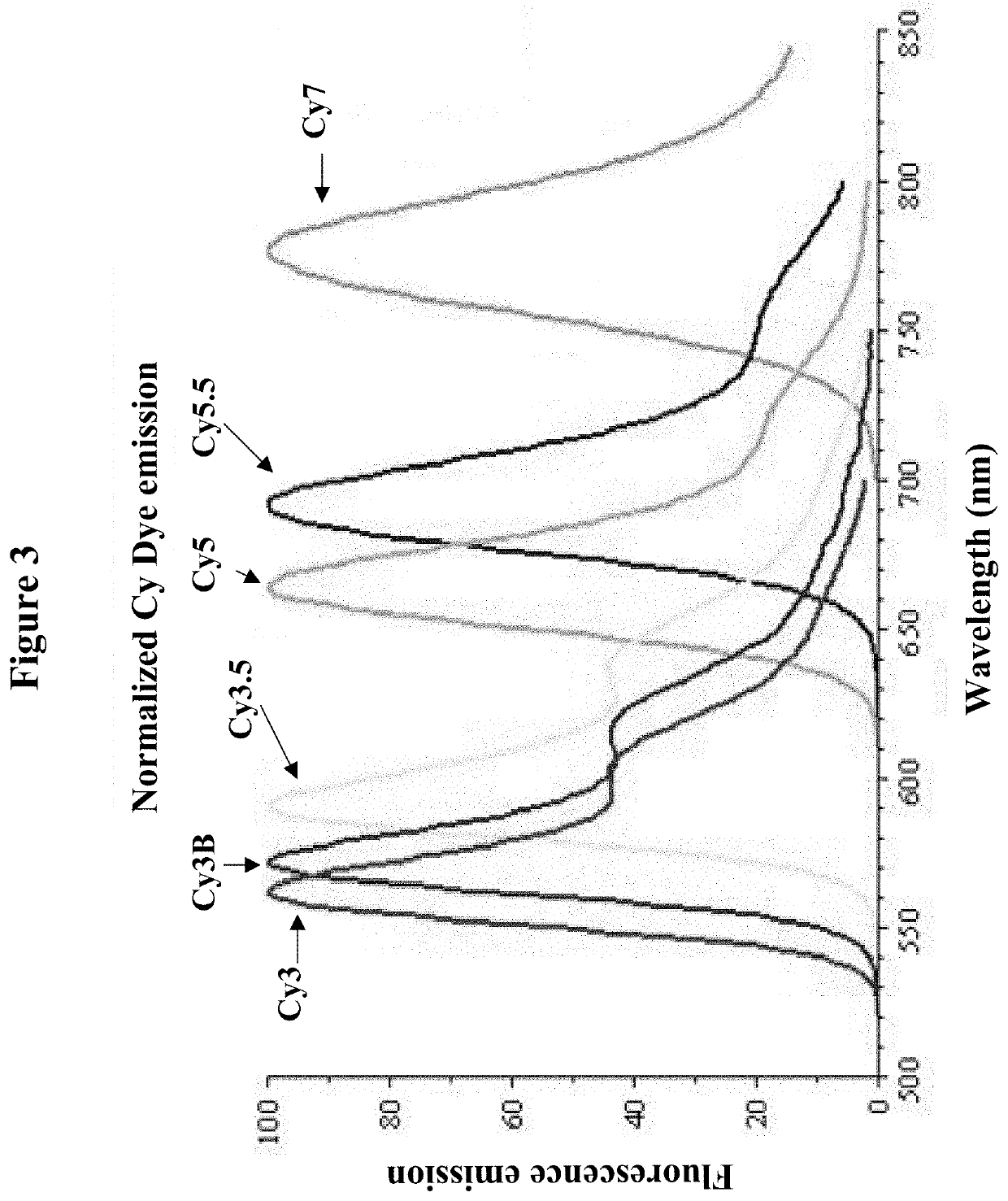DNA mutation detection employing enrichment of mutant polynucleotide sequences and minimally invasive sampling
a polynucleotide sequence and mutant technology, applied in the field of dna mutation detection, can solve the problems of numerous challenges in the detection of rare sequence variants in biological samples, and achieve the effects of reducing amplification of dna, simple detection, and simple structur
- Summary
- Abstract
- Description
- Claims
- Application Information
AI Technical Summary
Benefits of technology
Problems solved by technology
Method used
Image
Examples
example 1
[0069]The kit described in great detail in this Example is a KRAS mutation detection kit. However, the same type of kit may be assembled to detect mutations in NRAS, EGFR, BRAF, PIK3CA, JAK2, as well as other genes of importance in precision molecular diagnostics.
QCLAMP™ Technology for Mutation Detection
[0070]The QCLAMP™ KRAS Mutation Detection Kit is based on xenonucleic acid (XNA) mediated PCR clamping technology. XNA is a synthetic DNA analog in which the phosphodiester backbone has been replaced by a repeat formed by units of (2-aminoethyl)-glycine. XNAs hybridize tightly to complementary DNA target sequences only if the sequence is a complete match. Binding of XNA to its target sequence blocks strand elongation by DNA polymerase. When there is a mutation in the target site, and therefore a mismatch, the XNA:DNA duplex is unstable, allowing strand elongation by DNA polymerase. Addition of an XNA, whose sequence with a complete match to wild-type DNA, to a PCR reaction, blocks am...
example 2
[0102]PCR based enrichment of mutant DNA template sequences from template DNA derived from a lung cancer tumor biopsy sample is shown below using a xeno-nucleic acid clamping probe specific for KRAS Exon 2 codon 12. Only codon 12 mutant sequences are amplified as shown by the melting profile of the PCR amplicons generated before enrichment and after XNA clamped PCR enrichment:
[0103]The PCR product from the XNA clamped mutant enriched PCR reaction can be isolated and used directly in a Sanger sequencing or Pyrosequencing reaction or else it can be processed for next generation sequencing (NGS) by ligation of adapters and after removal of excess a dapters can be used directly for NGS without the need for another PCR amplification step.
example 3
Multiplex Detection of KRAS Mutations.
[0104]In this example of this invention, locus specific hydrolysis probes are designed to detect mutant amplicons in the KRAS proto-oncogene. Locus specific probes are designed for the following mutant amplicons in KRAS:
Probe 1 KRAS Exon 2 codon 12,
Probe 2 KRAS Exon 2 codon 13,
Probe 3 KRAS Exon 3 codon 59
Probe 4 KRAS Exon3 codon 61,
Probe 5 KRAS Exon 4 codon 117,
Probe 6 KRAS Exon 4 codon 146
and a control probe for a coding sequence in KRAS that has no mutations—Probe 7 KRAS Control probe
[0105]Each locus specific hydrolysis probe has a different fluorophore (and quencher) selected from the available fluorophores for multiplex applications (see FIGS. 3 and 4).
[0106]For the KRAS multiplex assay, KRAS c12, c59, c117 and c146 and KRAS control are detected in a one tube and KRAS c13 and c61 and KRAS control in a separate tube. So that all mutations in the KRAS proto-oncogene can be detected using only 2 PCR reaction tubes. FIG. 5 is an Example of the E...
PUM
| Property | Measurement | Unit |
|---|---|---|
| melting temperature | aaaaa | aaaaa |
| Tm | aaaaa | aaaaa |
| total volume | aaaaa | aaaaa |
Abstract
Description
Claims
Application Information
 Login to View More
Login to View More - R&D
- Intellectual Property
- Life Sciences
- Materials
- Tech Scout
- Unparalleled Data Quality
- Higher Quality Content
- 60% Fewer Hallucinations
Browse by: Latest US Patents, China's latest patents, Technical Efficacy Thesaurus, Application Domain, Technology Topic, Popular Technical Reports.
© 2025 PatSnap. All rights reserved.Legal|Privacy policy|Modern Slavery Act Transparency Statement|Sitemap|About US| Contact US: help@patsnap.com



